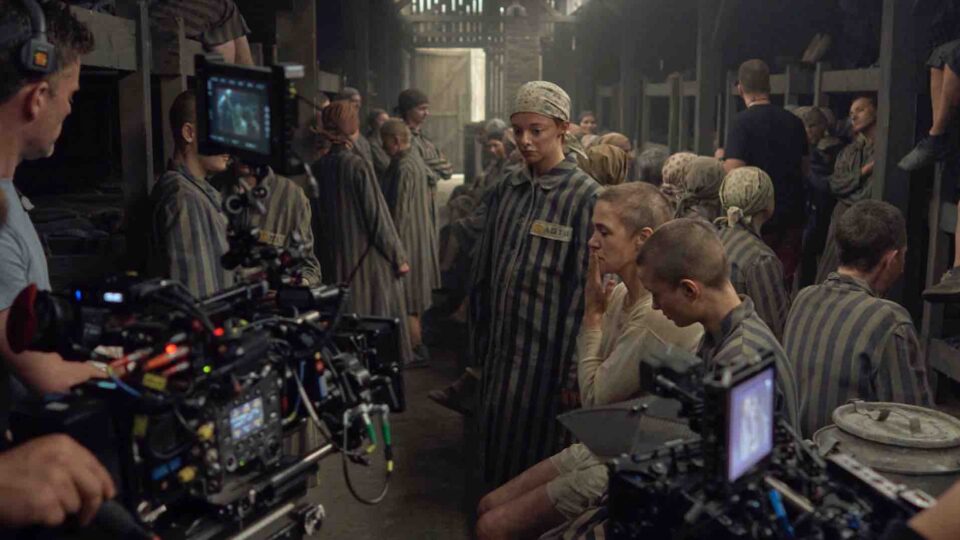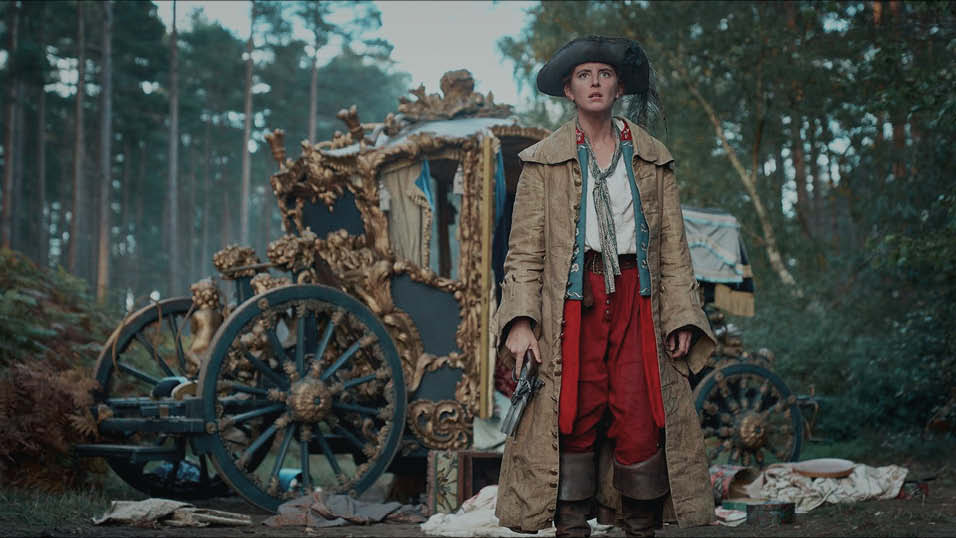Director Brian Hill is celebrating 21 years of his indie Century Films with a new movie and a retrospective of his work. Jon Creamer reports
Documentary director Brian Hill has clocked up a CV stuffed with award winners by tackling serious subjects in surprising ways.
He’s now celebrating the 21st birthday of his indie Century Films with a retrospective of his work at the Bertha DocHouse and the release of his film The Confessions of Thomas Quick, a feature documentary about a Swedish prisoner who confessed to a series of chilling murders.
Hill made his name in TV but, he says, he knew “right away” that Thomas Quick was a theatrical piece. “The stakes are so high, the story is so dramatic,” he says adding that there’s an easier route to cinema for documentary now. “There is an acceptance that there are different ways to get docs out there than just TV. In other countries that’s always been the case. We’ve been spoiled in this country with several broadcasters who really believe in documentary and promoted and funded it.” But that landscape may be changing, he reckons. “People who want to make certain films aren’t finding that possible for TV so are turning to cinema.” And there are advantages to cinema. “People have paid their money, they’re not going to walk out after a minute, so you can allow the story to build. A lot of TV is about underestimating the audience. With this you can let people figure it out themselves.” Not that cinema is a route to riches. “Making feature docs is not the way to make money.”
To make the film, Hill secured access to both Thomas Quick and those who treated him and investigated his claims. No easy feat as those involved had experienced years of ridicule in their home country. But then Hill has always managed to persuade people to tell their stories on screen – prisoners and porn stars among others, while often persuading them to do it in song. Gaining trust is the key. “Often it’s about how you approach people. You let them know you won’t take the piss or belittle them. People ask ‘Will you make me look stupid? My response is ‘I won’t but you might make yourself look stupid if you say or do stupid things so you should really think about whether you want to be in the film.’”
People are more wary now, he says. And that’s down to a “regrettable tendency to take people’s stories and use them as entertainment.” And there needs to be a better reason than that. “If you’re making docs you have a certain obligation to explore issues that are socially relevant and important. I couldn’t make stuff that has no meaning or importance.” Over the years he’s made films about “family break up, prostitution, alcoholism, drugs, murder, rape, domestic violence. I did make a film about Robbie Williams that came at a time when I needed a bit of light relief from all the other stuff.”
But despite a lot of the subject matter being serious, his approach has often been playful. He’s perhaps best known for inventing the documentary musical alongside poet Simon Armitage. He’s just editing his latest set in a school within a Mumbai slum. “For the final song we’ve got a thousand kids all singing and dancing. It’s the world’s first ever Bollywood style musical documentary.” The form sprang from the fact that “people have been telling stories though song for thousands of years, we still are with musicals so why can’t documentary use that? Who says that all documentary has to be ob doc?” And it also makes the subjects of the documentary less like ‘subjects’. “You can feel uncomfortable about making documentaries of people’s lives and them being subjects of yours. If you put them in a musical they become part of the project. They’re creative collaborators.”
He’s not so keen to leap into other new forms of documentary like rig shows though. “I can’t imagine it’s something I’d want to do though some of them can be really good. But I don’t think it’s necessarily more intimate. All sorts of intimate scenes have been shot by people with crews.” Though he would love Century to make series with a rig shows’ returnability. “We thought we had that with The Secret History of Our Streets” which ran for two series on BBC2. “I thought that was going to be our Who Do You Think You Are? But nobody wants it any more. It’s extraordinary really. It was critically well received, it won awards, people watched it.” A returner “gives you security,” he says.
And that’s important for an indie that’s still resolutely independent. “There’s probably not many indies that have been around as long as we have that are independent still. I like that. I know lots of people who’ve sold. They like the money but they’re unhappy about becoming just an employee of shareholders. I don’t think I could do that. I’ve been my own boss for 21 years.” And free to not make the programmes he doesn’t want to make. “I’d rather do something else for a living than make rubbish.”
CV
Brian Hill launched his production company Century Films 21 years ago this autumn. He has been a documentary innovator throughout that time directing the ‘first docusoap’ Sylvania Waters and pioneering the documentary musical with films like Drinking for England and the BAFTA-winning Feltham Sings. Other films from the Century stable include The Not Dead, which tells the legacy of war through three generations of soldiers, and the recent The Secret History of our Streets series. His film The Confessions of Thomas Quick opened in August
Don’t forget to book your tickets to the Televisual Factual Festival – more details at https://www.televisual.com/festival/
Jon Creamer
Share this story

















